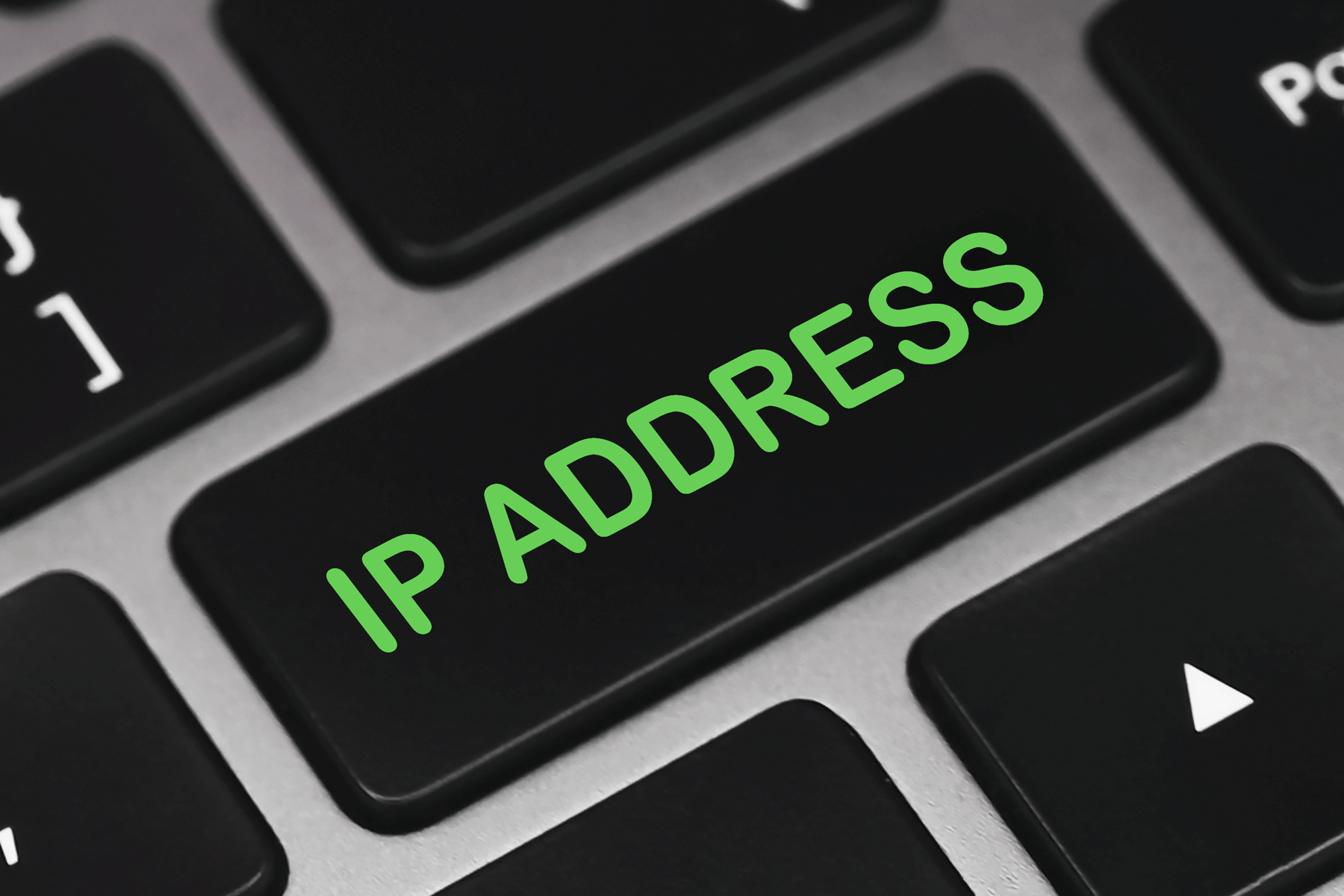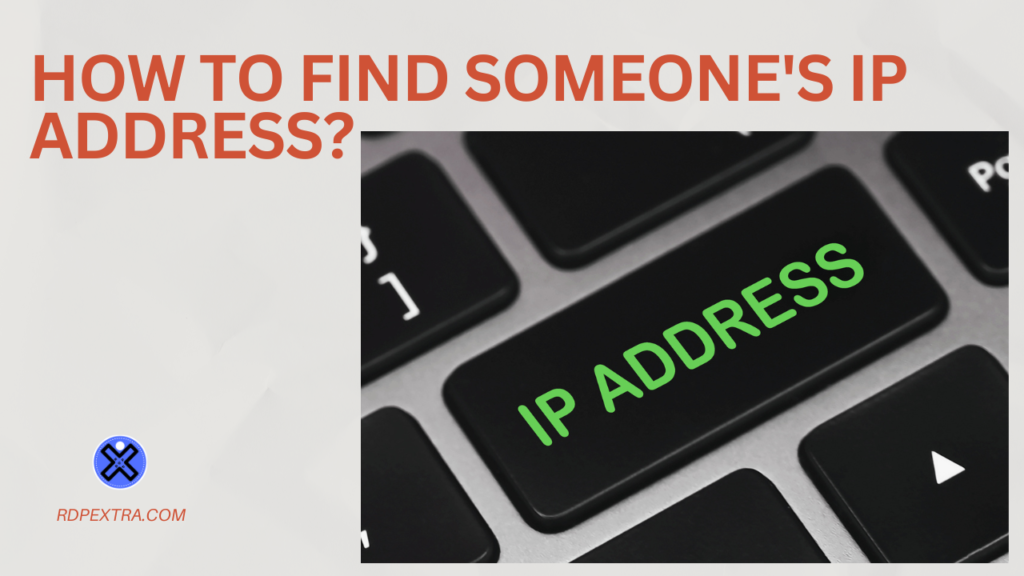

How to Find Someone’s IP Address: A Comprehensive Guide


In the digital era, an Internet Protocol (IP) address is a unique identifier assigned to each device connected to a network, facilitating communication between devices. Understanding how to locate someone’s IP address can be valuable for various legitimate purposes, such as website administration or cybersecurity analysis. This guide will outline several methods to find an IP address, along with their appropriate applications.
What is an IP Address?
An Internet Protocol (IP) deal with is a unique numerical identifier assigned to each tool related to a laptop network that uses the Internet Protocol for verbal exchange. It serves two number one capabilities: figuring out the host or community interface and presenting the region of the host within the community, thereby facilitating the routing of statistics packets among devices.
IP addresses are available two versions: IPv4 and IPv6. IPv4 addresses are 32-bit numbers, typically represented in decimal layout as four numbers separated by means of intervals (e.G., 192.168.1.1). Due to the exponential boom of the net, the pool of available IPv4 addresses has been exhausted, leading to the development and deployment of IPv6 addresses, which are 128-bit numbers represented in hexadecimal format, separated by way of colons (e.G., 2001:0db8:85a3:0000:0000:8a2e:0370:7334).
IP addresses may be categorised as public or non-public. Public IP addresses are globally particular and can be accessed over the internet, while non-public IP addresses are used inside nearby networks and aren’t ubuntu install deb routable on the worldwide internet. Devices inside a non-public network communicate with external networks through a method known as Network Address Translation (NAT), which permits more than one gadget on a local network to share a single public IP deal with.
There are several methods to find someone’s IP address:
- Using an IP Lookup Tool: If you have the IP address and want to gather more information about it, you can use an IP lookup tool. These tools can provide details such as the Internet Service Provider (ISP), hostname, and approximate geographical location associated with the IP address. For example, websites like WhatIsMyIPAddress offer such services.
- Examining Email Headers: When you receive an email, the header contains routing information, including the IP address of the sender. To view the email header in Gmail, open the email, click on the three dots in the top right corner, and select “Show original.” Look for the “Received” fields, which may ubuntu install deb contain the sender’s IP address. Keep in mind that this method may not always reveal the sender’s IP, especially if they are using email services that mask this information.
- Using Command Prompt: If you’re communicating with someone through a direct connection, such as a chat application, you can use the command prompt to find their IP address. Ensure that all other applications are closed to avoid capturing unrelated IP addresses. Open the command prompt and type netstat -an. This will display a list of active connections and their IP addresses. Identify the IP address associated with the application in question.
Why Would You Want to Find Someone’s IP Address?
It’s important to note that while these methods can help you find someone’s IP address, using this information without consent can raise privacy and legal concerns. Always ensure that your actions comply with applicable laws and respect individual privacy rights.
An IP (Internet Protocol) address is a unique identifier assigned to devices connected to a network, enabling them to find user’s ip address over the internet. There are several legitimate reasons why someone might want to find another person’s IP address:
1. Network Troubleshooting
In professional settings, IT administrators often need to identify the IP addresses of devices to diagnose and resolve connectivity issues. Knowing a device’s IP address allows them to monitor network traffic, identify conflicts, and ensure efficient network performance.
2. Enhancing Cybersecurity
By identifying the IP addresses of incoming connections, individuals and organizations can detect unauthorized access attempts. This information is crucial for implementing security measures, such as blocking malicious IPs, to protect sensitive data.
3. Managing Online Communities
Administrators of online forums or gaming platforms may monitor users’ IP addresses to enforce rules and prevent abusive behavior. Identifying disruptive users by their IP addresses enables moderators to implement bans or other corrective actions.
4. Geolocation Purposes
IP addresses can provide approximate geographical locations. This feature is beneficial for content providers aiming to deliver region-specific content or for businesses analyzing the geographic distribution of their audience.
Methods to Find Someone’s IP Address
If you have a legitimate reason to find someone’s IP address, consider the following methods:
1. Using Command Prompt
For devices on the same local network, you can use the command prompt to find their IP addresses.
- Steps:
- Open the Command Prompt on your computer.
- Type ipconfig and press Enter.
- This will display the IP configuration of your device, including the IP addresses of connected devices.
2. Checking Email Headers
Emails often contain the sender’s IP address within their headers.
- Steps:
- Open the email whose sender’s IP you want to find.
- Access the email’s full header information (this process varies depending on the email service provider).
- Look for lines that start with “Received: from” followed by the IP address.
3. Using Online IP Lookup Tools
Several online tools can help you find information about an IP address.
- Example:
- Enter the IP address you have, and the tool will provide details such as the ISP, hostname, and approximate location.
4. Utilizing IP Grabber Links
IP grabber tools generate unique links that, when clicked, capture the IP address of the user.
- Steps:
- Use a service like Grabify to create a tracking link.
- Share this link with the individual whose IP address you wish to obtain.
- When they click on the link, their IP address is logged, and you can view it on the Grabify dashboard.
Ethical Considerations
While there are legitimate reasons to find someone’s IP address, it’s essential to approach this responsibly:
- Privacy: Respect individuals’ privacy and avoid using IP tracking methods for malicious purposes.
- Legal Implications: Unauthorized tracking or misuse of someone’s IP address can lead to legal consequences. Always ensure compliance with relevant laws and regulations.
The Ethical Implications of Finding Someone’s IP Address
Discovering someone’s IP address involves significant ethical considerations, primarily centered around privacy, consent, and potential misuse.
Privacy Concerns
An IP address can reveal information about an individual’s approximate location and online activities. Accessing this data without consent can be viewed as an invasion of privacy, as individuals have the right to control their personal information. Unauthorized tracking of IP addresses can lead to misuse of personal data and potential identity theft.
Consent and Legal Implications
Obtaining someone’s IP address without their knowledge or consent raises legal issues. In many jurisdictions, such actions may violate privacy laws designed to protect individuals from unauthorized surveillance. For instance, in the United States, the Electronic Communications Privacy Act (ECPA) prohibits unauthorized interception and disclosure of electronic communications, which can encompass IP tracking.
Potential for Misuse
An IP address can be exploited for malicious purposes, such as launching denial-of-service attacks, engaging in phishing schemes, or unauthorized access to personal devices. Such actions not only breach ethical standards but also have legal consequences.
Ethical Best Practices
To navigate the ethical landscape of IP address discovery:
- Obtain Explicit Consent: Always seek permission before accessing or tracking someone’s IP address.
- Ensure Legitimate Purpose: Use IP tracking solely for lawful and ethical reasons, such as enhancing cybersecurity or conducting authorized investigations.
- Protect Collected Data: Implement robust security measures to safeguard any collected IP information and prevent unauthorized access.
How to Find Someone’s IP Address
An IP (Internet Protocol) address is a unique identifier assigned to devices connected to a network, enabling them to communicate over the internet. There are legitimate reasons to seek someone’s IP address, such as establishing secure connections or managing network access. However, it’s crucial to approach this task ethically and respect privacy laws. Below are several methods to find someone’s IP address:
1. Using Command Prompt (Windows) or Terminal (Mac):
If you’re communicating with someone online, you can use the command prompt to discover their IP address. Here’s how:
- For Windows:
- Close all applications to ensure only the necessary connections are active.
- Initiate a chat or connection with the target person.
- Press Win + R, type cmd, and press Enter to open the Command Prompt.
- Type netstat -an and press Enter.
- A list of active connections will appear; identify the IP address associated with the established connection.
- For Mac:
- Open the Terminal application.
- Use the netstat command similarly to list active connections.
This method requires that you have an active connection with the individual, such as through a chat application.
2. Examining Email Headers:
Emails often contain metadata, including the sender’s IP address. To find it:
- Gmail:
- Open the email in question.
- Click on the three dots in the top-right corner and select “Show original.”
- In the “Received” fields, look for the sender’s IP address.
- Other Email Services:
- Most email providers offer a way to view message headers; look for options like “View Full Header” or “Show Details.”
Note that some email services may mask the sender’s IP address for privacy reasons.
3. Utilizing IP Lookup Tools:
If you already have an IP address and want to gather more information about it:
- Use online IP lookup services like WhatIsMyIPAddress.com.
- Enter the IP address to retrieve details such as the Internet Service Provider (ISP), approximate location, and hostname.
These tools are useful for understanding more about an IP address you’ve obtained.
4. Deploying IP Grabbers:
IP grabbers are tools that generate trackable links. When someone clicks on the link, their IP address is logged.
- How to Use:
- Create a link using services like Grabify.
- Send the link to the target person.
- When they click on it, their IP address is recorded.
Ensure you have the individual’s consent before using this method, as it can be intrusive.
5. Checking Web Server Logs:
If you manage a website, you can access server logs to find IP addresses of visitors.
- Accessing Logs:
- Log in to your web hosting control panel.
- Navigate to the server logs section.
- Review the logs to see IP addresses of incoming connections.
This method is particularly useful for website administrators monitoring traffic.
6. Using Social Media and Messaging Apps:
While not straightforward, it’s possible to obtain an IP address through direct interactions on platforms like Facebook Messenger or WhatsApp.
- Method:
- Engage in a chat with the person.
- Use the netstat command during the active chat session to identify established connections.
This method requires technical expertise and may not always yield results due to platform security measures.
Ethical Considerations:
While these methods can be used to find someone’s IP address, it’s essential to respect privacy and legal boundaries. Always obtain consent before attempting to retrieve someone’s IP information, and ensure your actions comply with local laws and regulations.
In summary, various methods exist to find someone’s IP address,find user’s ip address ranging from technical commands to online tools. However, it’s crucial to use these methods responsibly and ethically, always prioritizing the privacy and consent of others.


How to Protect Your Own IP Address
An Internet Protocol (IP) address is a unique identifier assigned to each device connected to the internet, functioning similarly to a digital home address. While essential for online communication, an exposed IP address can compromise your privacy and security. Protecting your IP address is crucial to safeguarding your personal information and preventing potential cyber threats.find user’s ip address
Risks Associated with an Exposed IP Address
When your IP address is visible, it can lead to several vulnerabilities:
- Location Tracking: Malicious entities can approximate your geographical location, potentially leading to privacy invasions or targeted attacks.
- Unauthorized Access: Cybercriminals can exploit your IP address to infiltrate your network, gaining access to personal data or connected devices.
- Distributed Denial of Service (DDoS) Attacks: Attackers can overwhelm your network with excessive traffic, causing disruptions or complete service outages.
Strategies to Protect Your IP Address
- Utilize a Virtual Private Network (VPN)
A VPN encrypts your internet connection and routes it through a remote server, effectively masking your real IP address. This not only conceals your location but also secures your data from potential eavesdroppers. When selecting a VPN, opt for reputable providers that offer strong encryption standards and a strict no-logs policy to ensure your online activities remain private. - Employ Proxy Servers
Proxy servers act as intermediaries between your device and the internet, hiding your IP address from the websites you visit. While proxies can provide anonymity, they often lack the robust encryption that VPNs offer, making them less secure for sensitive transactions. Additionally, some proxy services may log your activities or inject advertisements, so it’s essential to choose trustworthy providers. - Use the Tor Network
The Tor browser routes your internet traffic through multiple volunteer-operated servers worldwide, anonymizing your connection and concealing your IP address. This method makes it exceedingly difficult for anyone to trace your online activities back to you. However, due to the multiple relays, Tor can significantly slow down your browsing experience and may be blocked by certain websites.
- Configure Your Router for Enhanced Security
Securing your home network is vital in protecting your IP address:- Change Default IP Address: Access your router settings and modify the default IP address to a less common one, making it harder for attackers to locate your network.
- Enable WPA3 Encryption: Utilize the latest Wi-Fi encryption standard to safeguard your wireless communications.
- Disable Remote Management: Turn off remote access features to prevent unauthorized modifications to your router settings.
- Exercise Caution on Public Wi-Fi Networks
Public Wi-Fi networks are often unsecured, making them prime targets for cybercriminals seeking to intercept data or exploit exposed IP addresses. When using public Wi-Fi:- Always Use a VPN: Ensure your VPN is active to encrypt your connection and mask your IP address.
- Avoid Sensitive Transactions: Refrain from accessing banking services or entering personal information.
- Forget the Network After Use: Prevent automatic reconnection by removing the network from your device’s remembered connections.
- Regularly Update Software and Devices
Keeping your operating systems, applications, and devices up-to-date ensures that security vulnerabilities are patched promptly, reducing the risk of exploitation through your IP address. Enable automatic updates where possible to maintain optimal security. - Use Strong, Unique Passwords
Implementing complex passwords for your devices and online accounts adds an extra layer of security, making it more challenging for unauthorized individuals to gain access. Consider using a password manager to generate and store unique passwords securely.
Conclusion
An IP (Internet Protocol) address is a unique identifier how to get someones ip address assigned to devices connected to a network, facilitating communication over the internet. There are legitimate methods to ascertain someone’s IP address, each with specific applications and ethical considerations.
1. Utilizing IP Lookup Tools
If you possess an IP address and seek associated information, IP lookup tools can be beneficial. These tools provide details such as the how to get someones ip address Internet Service Provider (ISP), hostname, and general geographic location linked to the IP address. It’s important to note that while these tools can offer insights, they do not disclose personal identifiers like an individual’s name or exact address.
2. Examining Email Headers
Emails often contain metadata, including the sender’s IP address. By accessing the email header, you can identify the originating IP. For instance, in Gmail:
- Open the email and click on the three dots in the top right corner.
- Select “Show original.”
- In the SPF field, look for a string formatted like “12.130.137.78,” which represents the sender’s IP address.
This method is more effective with marketing or organizational emails, as personal emails may not always reveal the sender’s IP.
3. Using Command Prompt or Terminal
To find the IP address associated with a specific domain, you can use the command prompt (Windows) or terminal (Mac):
- Open the command prompt or terminal.
- Type ping [domain name] (e.g., ping google.com).
- Press Enter.
The resulting output will display the IP address corresponding to the domain. This technique is useful for identifying the IP addresses of websites or servers.
Ethical and Legal Considerations
While obtaining an IP address is not inherently illegal, it’s crucial to use this information responsibly. Unauthorized attempts to access personal data or harass individuals using their IP address can lead to legal consequences. Alwayshow do you get someone’s ip ensure that your actions comply with privacy laws and ethical standards.
Protecting Your Own IP Address
Just as you might seek someone’s IP address, others can seek yours. To safeguard your online privacy:
- Use a VPN (Virtual Private Network): A VPN masks your real IP address by routing your internet traffic through a different server, enhancing anonymity.
- Employ Proxy Servers: Proxies act as intermediaries between your device and the internet, hiding your IP address from the websites you visit.
